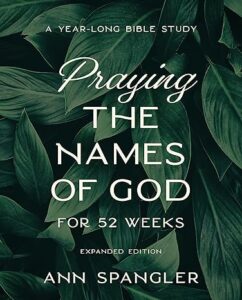
Child
For unto us a child is born, unto us a son is given. – Isaiah 9:6a
For this week’s name of Jesus, we turn again to Isaiah. Because, despite what Andy Stanley might say, unhitching from the Old Testament is a really bad idea. The Old Testament adds depth and context, an understanding of God’s character we wouldn’t have if we ignored the Old Testament.
One common characteristic of Hebrew poetry is parallelism. When I first studied Isaiah, I muttered, “You just said that,” more than once. Why did Isaiah need to repeat himself – a Child is born, a Son is given? The real question is, however, did he repeat himself?
A Son is given – that’s acknowledgment of Jesus’s right, as the Son of David, to David’s throne. It’s a statement of his divine authority.
But a Child is born? That’s his humanity. God incarnate came to earth as a baby. A helpless child. Jesus relied on his parents for everything from nourishment to getting his nappy changed. That blows my mind. Jesus created everything.
16 For by Him all things were created, both in the heavens and on earth, visible and invisible, whether thrones or dominions or rulers or authorities—all things have been created through Him and for Him. 17 He is before all things, and in Him all things hold together. – Colossians 1:16-17
Consider this: the creator of the universe designed the species he embodied. He designed himself to be helpless when he was born.
 The magi from the east came looking for the Child who was born king of the Jews.
The magi from the east came looking for the Child who was born king of the Jews.
After coming into the house they saw the Child with Mary His mother; and they fell to the ground and worshiped Him. Then, opening their treasures, they presented to Him gifts of gold, frankincense, and myrrh. – Matthew 2:11
Not every species, or to use a creation science term, baramin or created kind, is helpless at birth. Many reptiles, fish, and insects are precocial, independent at birth. Not human babies. Jesus designed the system that would leave him vulnerable, dependent on others. Can you imagine? And can you imagine the responsibility Mary and Joseph had – they know this Child is God’s own Son, and they’re responsible for him. I think of what Mary must have gone through when he was twelve and she lost track of him. I lost God!
Hebrews 4:15 assures us that Jesus can sympathize with our weaknesses in every way. He got hungry and thirsty and tired. He needed help reaching things and tying his sandals. He knew what it was to be dismissed and misunderstood. And he did it all for us.

This series is inspired by Ann Spangler’s Praying the Names of God for 52 Weeks





One Comment
Pingback: